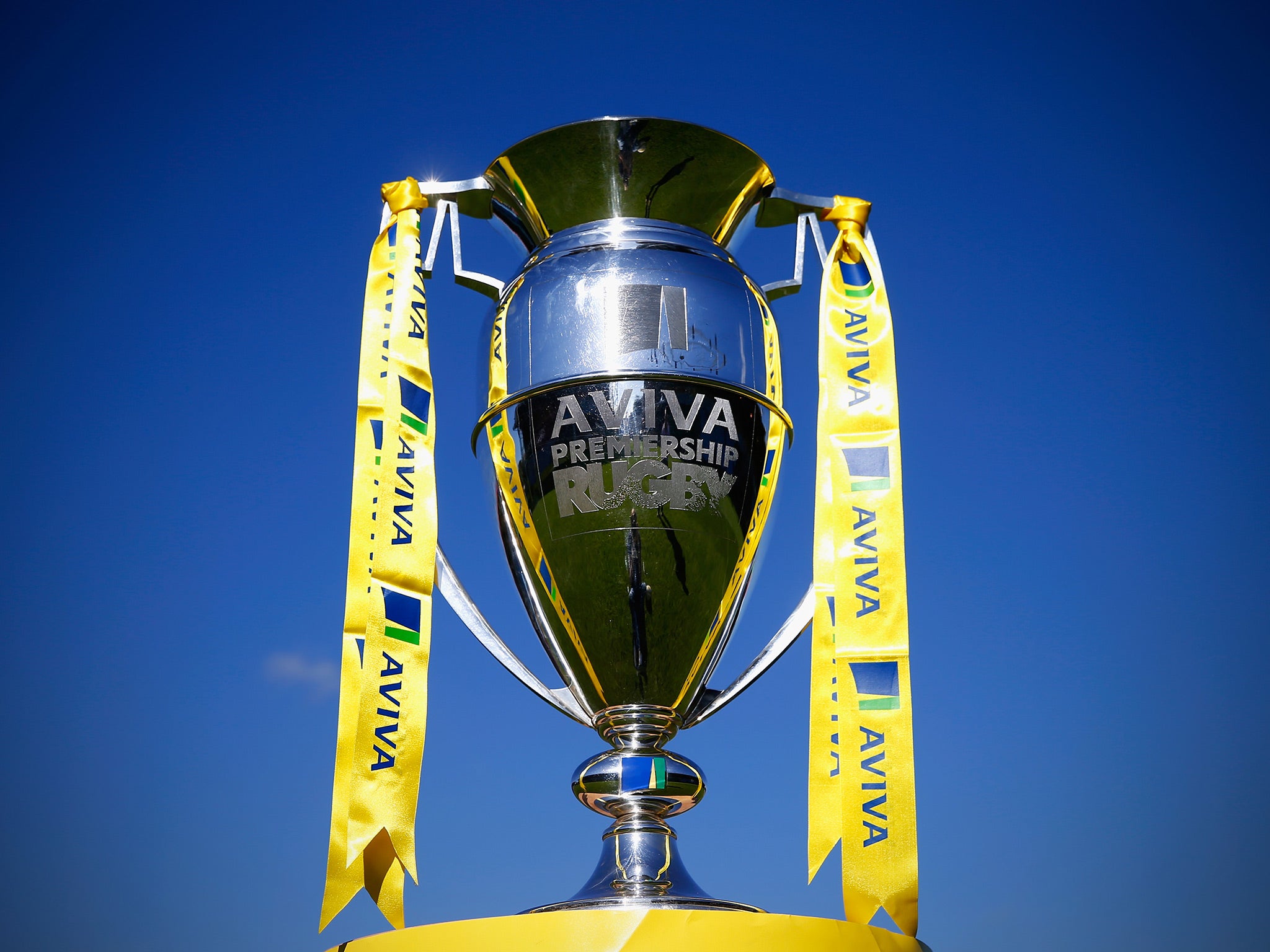Two Premiership players test positive for recreational drug use
The Rugby Football Union has not disclosed the identities of the two top-flight players in question as the violations are their first offence

Your support helps us to tell the story
From reproductive rights to climate change to Big Tech, The Independent is on the ground when the story is developing. Whether it's investigating the financials of Elon Musk's pro-Trump PAC or producing our latest documentary, 'The A Word', which shines a light on the American women fighting for reproductive rights, we know how important it is to parse out the facts from the messaging.
At such a critical moment in US history, we need reporters on the ground. Your donation allows us to keep sending journalists to speak to both sides of the story.
The Independent is trusted by Americans across the entire political spectrum. And unlike many other quality news outlets, we choose not to lock Americans out of our reporting and analysis with paywalls. We believe quality journalism should be available to everyone, paid for by those who can afford it.
Your support makes all the difference.Two Premiership players returned positive tests for illicit recreational drug use last season, the Rugby Football Union (RFU) has confirmed.
The governing body of English rugby union disclosed the violations in their latest annual anti-doping report, which was released on Thursday morning.
The identities of the players in question were not revealed, in accordance with the RFU’s policy on maintaining strict confidentiality for all violations which are a player’s first offence.
The pair have been fined by the RFU. A second offence from either player will lead to a ban.
A total of 386 urine and hair samples were collected from players at Premiership clubs as part of the RFU’s recreational drug testing programme.
1,001 samples were also collected as part of the governing body’s anti-doping programme, which aims to detect uses of performance-enhancing drugs within the sport.
Four positive anti-doping tests were detected, with all coming from outside the elite game in so-called “community rugby”.
In the foreword to the report, the RFU's professional rugby director and chair of the anti-doping advisory group Nigel Melville wrote: “A clean sport is one which can thrive and grow, and one which will encourage the next generation of players to pick up a ball and play.
“Since taking over the professional rugby department I have been impressed by the genuine desire of all in the game to keep it doping-free.”
A clean sport is one which can thrive and grow, and one which will encourage the next generation of players to pick up a ball and play.
However, with only 241 anti-doping tests administered during the 2015/16 Premiership season, in a division of 12 teams with squads of more than 35 players, there are concerns that some players may have gone through the entirety of a campaign without being tested.
The RFU’s testing programme for illicit recreational drugs was introduced in 2009 following the suspension of three Bath players.
Michael Lipman, Alex Crockett and Andrew Higgins were handed nine-month bans after they refused to submit doping tests following allegations of cocaine use.
Despite the two new positive tests, Stephen Watkins, the RFUs anti-doping manager, told BBC Sport that he believes that the sport's relationship with recreational drugs has improved.
"We feel very confident those issues don't exist in the Premiership any longer. While we can never rule it out, we feel pretty confident we don't have some of the issues which maybe occurred in the past," he said.
Join our commenting forum
Join thought-provoking conversations, follow other Independent readers and see their replies
Comments